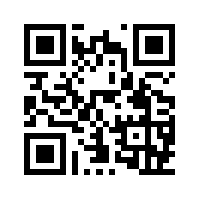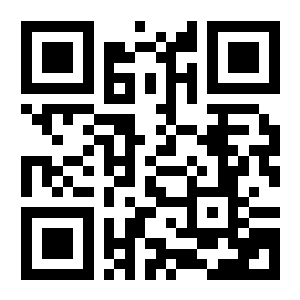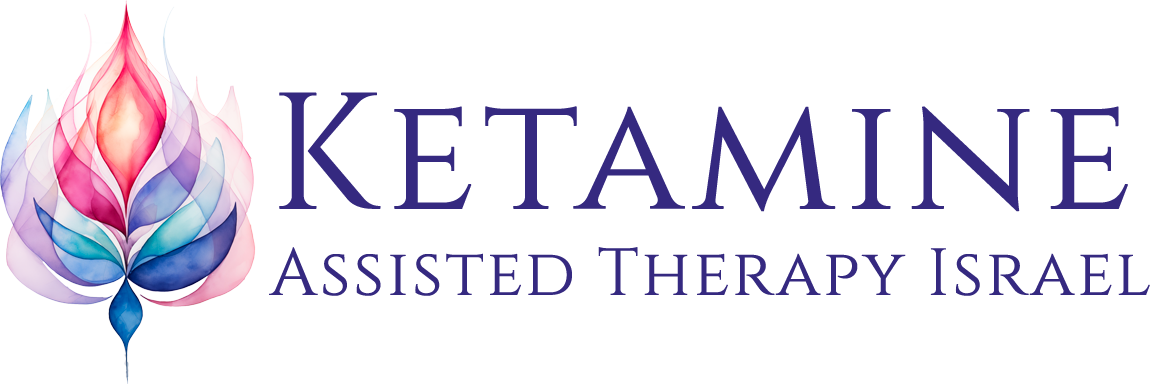Welcome beautiful soul.
You're embarking on a journey of exploration, one I bless you will lead to healing, love, compassion, and a richer life experience. I encourage you to learn about your options before jumping in.
What is Ketamine-Assisted Therapy?
I'm passionate about learning, integrating, and sharing innovative tools that pave the way to healing and transformation. Among the therapeutic options I offer is Ketamine-Assisted Psychotherapy (KAP), a groundbreaking approach designed to support individuals struggling with depression, anxiety, PTSD, and other mental health challenges that have not responded to traditional treatments.
My mission is to provide a path to wellness that respects the complexity of your individual experiences. I understand that healing is not one-size-fits-all, which is why I offer personalized care plans tailored to your unique needs, including therapy, integration coaching, psychedelic assisted therapy, and breathwork.
Ketamine-Assisted Therapy combines the use of low-dose ketamine with psychotherapy to create a powerful therapeutic experience. Ketamine has been shown to promote neuroplasticity and open the mind to new perspectives and insights, enhancing the therapeutic process and facilitating profound emotional and cognitive breakthroughs. Unlike other journeys I offer, KAP requires a psychiatric evaluation, diagnosis, and prescription for an intramuscular injection offered at a Ketamine clinic.
My Approach:
- Comprehensive Evaluation: Your journey begins with a discovery call to assess your needs and explore your options. If we both think you're a good fit for Ketamine, you'll be referred to my partner psychiatrist for an evaluation, diagnosis, and prescription.
- Personalized Treatment: We'll work together with the psychiatrist to design a treatment plan that aligns with your specific goals and challenges, incorporating ketamine sessions with integrative coaching.
- Supportive Environment: The Ketamine clinic offers a safe, comfortable, and private setting for your sessions, ensuring a serene backdrop for your healing process.
- Ongoing Integration: I strongly believe that they key to transformation is integration. We'll work together to weave the insights gained from your sessions into the fabric of your daily life.
Why work with me?
- Expertise: I'm partnered with a team of licensed professionals with extensive training in KAP and a deep commitment to mental health care.
- Innovation: Our team stays at the forefront of psychiatric treatment to provide you with the most effective approaches to healing.
- Compassion: At the heart of my practice is a genuine desire to see you thrive. My healing journey has revolved around learning to see, hear, and hold space for myself and then offer that same love, mothering, and deep care to others. I'm strongly committed to offering you a space where you feel heard, valued, and empowered.
Begin Your Journey Today
If you or someone you love is navigating the challenges of mental health, I'm here to offer hope and help. Contact me to learn more about Ketamine-Assisted Therapy and discover how I can support you on your path to wellness.

Ketamine-Assisted Therapy 101
KETAMINE-ASSISTED THERAPY is quite new to israel and possibly quite new to you. So, I've put together some basic info to get you started
Firstly, lets clarify what Psychedelic-Assisted Therapy is.
Psychedelic-assisted therapy has been researched and discussed for its potential benefits in treating a variety of mental health conditions. Here's a list of benefits associated with this innovative therapeutic approach:
- Rapid Symptom Relief: Studies show that psychedelic-assisted therapy can lead to rapid and significant reductions in symptoms of depression, anxiety, and PTSD, often after just a few sessions.
- Increased Openness and Neuroplasticity: Psychedelics can increase neuroplasticity, making the brain more adaptable and open to change, which is beneficial for breaking old patterns and forming new, healthier habits and thoughts.
- Improved Emotional Processing: These therapies can help individuals process and integrate traumatic or difficult emotions and experiences, leading to greater emotional awareness and resilience.
- Enhanced Self-Reflection: Psychedelics often induce profound introspective states that can lead to increased self-awareness and insight into personal behaviors, thought patterns, and relationships.
- Connection and Empathy: Many individuals report feeling a greater sense of connection to others, the world around them, and themselves, fostering empathy and reducing feelings of isolation.
- Lasting Changes in Perspective: The experiences facilitated by psychedelic-assisted therapy can lead to long-term shifts in perspective and attitude towards life, contributing to overall well-being and satisfaction.
- Reduction in Substance Abuse: There's promising evidence suggesting that psychedelic therapy can be effective in treating addiction, including alcohol, tobacco, and other drugs, by addressing underlying issues and motivations.
- Spiritual and Existential Growth: These therapies can provoke spiritual or existential insights, helping individuals find meaning, purpose, and a sense of peace.
- Safety and Tolerability: When conducted in a controlled, therapeutic setting, psychedelic-assisted therapy has been shown to be safe, with manageable side effects, under professional guidance.
- Complement to Traditional Therapies: This approach can complement traditional psychotherapy or coaching by providing new therapeutic experiences and insights, enhancing overall treatment effectiveness.
It's important to note that while the potential benefits are promising, psychedelic-assisted therapy is still under research and should only be considered under the guidance of trained professionals in a safe, therapeutic, and nurturing setting. psychedelics have huge healing potential; they're not meant to be debased as recreational or party drugs.
Secondly, lets clarify what Ketamine is....
Ketamine is a medication primarily used for starting and maintaining anesthesia. It induces a trance-like state while providing pain relief, sedation, and memory loss. Discovered in the 1960s, ketamine has a variety of medical applications and is known for its safety profile, particularly because it tends to preserve breathing and airway reflexes.
Beyond its anesthetic uses, ketamine has gained attention for its rapid-acting antidepressant effects. It's particularly noted for its ability to alleviate symptoms of depression, including treatment-resistant depression, within hours or days, rather than the weeks typically required for traditional antidepressants to take effect. This rapid action has made it a valuable option in emergency settings for managing acute suicidal ideation.
Ketamine operates through a unique mechanism compared to other antidepressants, which work on serotonin receptors. It primarily acts on the NMDA receptor, part of the glutamate pathway, which is the most abundant excitatory neurotransmitter system in the brain. This action is thought to contribute to its effects on mood, thought patterns, and neuroplasticity—the brain's ability to form new neural connections.
Because of the mind and heart-opening experiences many patients experience, most researchers and clinicians consider a psychedelic in its effects on the psyche and spirit.
In recent years, ketamine has also been explored in the context of psychotherapy, known as ketamine-assisted therapy (KAT). This approach combines low doses of ketamine with psychotherapeutic support to enhance mental health treatment, providing new pathways for patients with chronic mental health conditions to explore their thoughts and emotions.
Despite its potential benefits, ketamine can have side effects and risks, including dissociation, nausea, elevated blood pressure, and, in the case of serious misuse, dependency. Therefore, its use is carefully controlled and monitored in clinical settings.

Frequently Asked Questions
KETAMINE ASSISTED THERAPY HAS HELPED THOUSANDS HEAL, LEARN, AND GROW.
I'VE CREATED A COMPREHENSIVE FAQ TO HELP YOU CLARIFY WHETHER IT COULD BE RIGHT FOR YOU.
Q: What is Ketamine-Assisted Therapy?
A: Ketamine-Assisted Therapy is currently the only legal form of Psychedelic-Assisted Therapy in Israel. It combines traditional therapy or coaching with the use of ketamine, a medication known for its ability to alleviate symptoms of depression, anxiety, and PTSD. In Israel, Ketamine is administered through an intramuscular injection by the prescribing psychiatrist in a controlled, therapeutic setting to enhance the therapeutic process.
Q: How does Ketamine work in therapy?
A: Ketamine acts on the brain’s neurotransmitters, particularly glutamate, which can lead to rapid mood improvement and cognitive changes. These effects can create a more receptive state for psychotherapy, allowing patients to explore and address their issues more effectively.
Q: Who can benefit from Ketamine-Assisted Therapy?
A: This therapy is often considered for individuals with treatment-resistant depression, severe anxiety, PTSD, and other mental health conditions that haven’t responded well to conventional treatments. Those not struggling with a mental health disorder but seeking psycho-spiritual insights and transformation sometimes choose other psychedelics because they can be taken at home.
Q: How does Ketamine-Assisted Therapy (KAP) facilitate psychological healing?
A: KAP can create a unique psychological state that allows for deep introspection and emotional processing. This state can help individuals confront and work through underlying psychological issues, traumas, and mental blocks that are difficult to access in normal states of consciousness.
Q: Can KAP lead to spiritual experiences?
A: Many patients report having profound spiritual experiences during KAP sessions, such as feelings of interconnectedness, transcendence, or encountering aspects of their subconscious. These experiences can be deeply meaningful and contribute to personal growth and healing.
Q: How does KAP differ from traditional psychotherapy?
A: While traditional psychotherapy relies on conscious dialogue and cognitive processes, KAP can access deeper levels of the mind, facilitating transformative experiences and insights that might take much longer to achieve in conventional therapy. Many describe their sessions as being the equivalent of months or years of traditional therapy.
Q: What is the role of the therapist during a KAP session?
A: The therapist provides a safe and supportive space, guiding the patient through their experience. They help integrate the insights and emotional breakthroughs into the patient’s ongoing therapeutic journey.
Q: How does KAP help with personal growth and self-discovery?
A: KAP can accelerate the journey towards self-discovery by breaking down internal barriers and defense mechanisms, allowing individuals to confront their true selves, and address deeply ingrained patterns and behaviors.
Q: Can KAP assist in overcoming past trauma?
A: Yes, KAP has been found effective in helping individuals process and heal from past trauma. The altered state of consciousness induced by ketamine can provide a new perspective and distance from traumatic memories, making them easier to work through.
Q: Is there any preparation required before a KAP session for enhancing its psychological or spiritual benefits?
A: Pre-session preparation often involves setting intentions, practicing mindfulness, or engaging in reflective exercises. This preparation can help deepen the therapeutic experience.
Q: How important is the integration process after a KAP session?
A: Integration is crucial. It involves making sense of and applying the insights and emotional shifts experienced during the session to one's life. Ongoing therapy or coaching sessions are often used to assist with this process.
Q: Is Ketamine-Assisted Therapy safe?
A: When administered by qualified professionals in a controlled environment, ketamine therapy is generally safe. However, it’s not suitable for everyone, and a thorough medical and psychological evaluation is necessary before beginning treatment.
Q: What can I expect in a Ketamine-Assisted Therapy session?
A: We'll meet in the clinic for four hours. We'll have an opening conversation to clarify your intentions, discuss any concerns or fears, and get your comfortable in the space. You'll lie down and put on an eye mask as the journey music begins. After receiving your injection, I'll guide you into your journey with a meditation. The ketamine takes about four to five minutes to take effect. I'll be right next to you during your entire journey, ready to be of service and offer supportive words, silence, touch, or questions if you'd like them. Ketamine tends to awaken your inner healer, so you'll likely have an introspective session and may choose not to engage at all. This is your journey, so you get to call the shots on how I can best serve you. About 45-90 minutes into the session, you'll begin to wean off the ketamine and, when you're ready, I'll offer you a therapeutic conversation to help you recall, take note of, and integrate the insights you gained during your journey.
Q: How long does a therapy session last?
A: Sessions usually last between 3 to 4 hours, including the time for the ketamine administration and the therapeutic process.
Q: Are there any side effects of Ketamine-Assisted Therapy?
A: Some individuals may experience temporary side effects like nausea, dizziness, disorientation, or vivid dreams during or shortly after treatment.
Q: How many sessions are typically required?
A: The number of sessions varies based on individual needs. Some may feel improvement after a single session, while others might need a series of sessions.
Q: Can I drive after a session?
A: No, it's advised not to drive or operate heavy machinery for at least 24 hours after a session due to potential after-effects of ketamine.
Q: Is Ketamine-Assisted Therapy covered by insurance?
A: Currently in Israel, it is not.
Q: How does Ketamine-Assisted Therapy differ from Breathwork-Assited Therapy?
- Nature of the Practice: Breathwork involves using deep breathing to activate the relaxation response in the body. Once in a deep trance, your body is able to initiate healing and repair and your subconscious mind is accessible to you. Many experience psychedelic-like states in this highly-oxygenated environment, with emotions or memories coming up for healing, the heart opening for more love and compassion, and even meetings with angels, ancestors, or guides.
- Purpose and Effect: Breathwork is used for relaxation, stress reduction, healing and sometimes for spiritual experiences. It does not involve psychoactive substances and relies on the body's physiological responses. KAP, in contrast, involves a pharmacological intervention aiming for rapid changes in mental health conditions.
- Risks and Accessibility: A Breathwork session is shorter, safer, and can be practiced in various settings at a lower cost. KAP requires medical oversight due to the pharmacological nature of ketamine and its potential side effects. For those with strong states of anxiety or depression, ketamine can more easily lower the ego-wall that block us from accessing the painful emotions, beliefs, and experience that cause us to suffer.
Q: How does Ketamine-Assisted Therapy differ from Cannabis-Assisted Therapy?
- Mechanism of Action: Ketamine is a dissociative anesthetic that acts on the NMDA receptors in the brain, often leading to altered states of consciousness and dissociation from the usual mental state. Cannabis, containing THC and CBD, works on the endocannabinoid system and is known for its relaxing, mood-altering effects, and in some cases, enhancing introspection.
- Therapeutic Use: KAP is typically used for treatment-resistant depression, severe anxiety, and PTSD. It's known for its rapid antidepressant effects. Cannabis-Assisted Therapy is often used for chronic pain, anxiety, and stress relief, and it may not have the same immediate impact on severe mental health conditions as ketamine.
- Legal and Accessibility Issues: Ketamine, used off-label for depression, is legal in a clinical setting in Israel. Cannabis is harder to procure in Israel, as it requires a license, affecting its use in therapeutic settings.
Q: How does Ketamine-Assisted Therapy differ from Mushroom-Assisted Therapy?
- Active Compounds: The primary psychoactive component in "magic mushrooms" is psilocybin, which is converted to psilocin in the body. It primarily affects the serotonin system, leading to altered perceptions and potentially profound psychological experiences.
- Experience and Duration: Mushroom-Assisted Therapy often involves longer sessions (4-6 hours) compared to KAP and can lead to more intense and sometimes challenging psychological experiences. KAP tends to be shorter (2-4 hours) with a more controlled and less intense dissociative state.
- Research and Legal Status: Both are currently subjects of research in mental health therapy. However, ketamine is legally used in a clinical setting, while psilocybin is still illegal in Israel, although decriminalization and research efforts are growing.
- Note: Each of these therapies has unique characteristics, benefits, and considerations. The choice among them would depend on individual needs, the specific mental health conditions being treated, and the legal and medical preferences of the patient.

Questions? Feel free to contact me via Email or Whatsapp!
chana@chanamason.com

Click on the QR code to chat with me!

